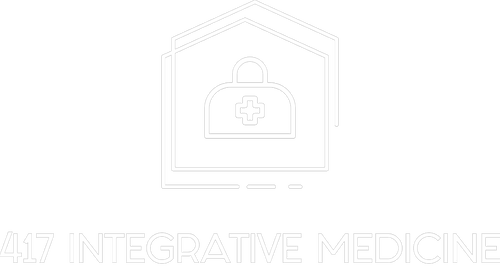A Guide to Integrative Women’s Health During Menopause

Menopause is a natural phase in every woman’s life, but it often comes with changes that affect both body and mind. Many women look for support that goes beyond standard prescriptions. This is where integrative medicine can help.
At 417 Integrative Medicine, the focus is on Integrative Women’s Health, especially during menopause. This approach combines modern science with natural, supportive therapies. It looks at the whole person, not just symptoms, to create care plans that fit your real needs. Let’s break down how this approach works and what you can expect.
Understanding Menopause and the Need for a Comprehensive Approach
Menopause marks the end of monthly periods. It usually happens between the ages of 45 and 55. During this time, the body produces less estrogen and other hormones, which can cause hot flashes, sleep issues, mood swings, and more.
A comprehensive approach means looking at all aspects of a woman’s health care, physical, emotional, and mental. That includes sleep, diet, stress, and even relationships. Integrative medicine takes all of this into account when creating a personalized wellness plan.
Finding the Right Practitioner Matters
Not all healthcare professionals are trained in integrative medicine. Look for a practitioner who understands women’s unique health needs and is open to using a mix of approaches.
This could be a primary care provider with added training or a specialist in women’s hormonal health, obstetrics and gynecology, or functional medicine. The goal is to work with someone who listens, asks questions, and builds a personalized plan that fits you.
How Hormones Play a Role in Menopause
Hormonal changes are one of the main causes of menopause symptoms. Estrogen, progesterone, and other hormones drop during this time. This can affect your energy, mood, skin, and bone health.
Your practitioner may suggest lifestyle changes, nutritional support, or natural supplements to help manage hormone shifts. Some women may also explore hormone therapy. All of this depends on your needs and comfort level.
Traditional Chinese Medicine: An Ancient Support System
Traditional Chinese Medicine has been used for thousands of years to help women manage menopause and hormonal changes. It includes acupuncture, herbs, and food therapy based on individual patterns.
A practitioner trained in Chinese medicine may check your tongue and pulse to find imbalances. Then they create a personalized plan using herbs, food adjustments, and acupuncture sessions to help with symptoms like hot flashes, mood swings, and low energy.
Functional Medicine and Root-Cause Care
Functional medicine focuses on finding and addressing the root causes of symptoms. Rather than only treating hot flashes or sleep issues, it looks at why they happen. This can include tests for hormone levels, gut function, or nutrient balance.
Based on those results, your care provider may suggest nutritional changes, dietary supplements, movement routines, and mind-body practices such as meditation or deep breathing. The goal is to build a comprehensive, long-term plan that supports overall health.
The Role of Energy Medicine
Energy medicine works on your body’s energy fields to support healing and balance. Many women try Reiki, tapping, or other noninvasive light-touch techniques to ease stress and improve wellness.
These healing practices may not always have strong studies behind them, but many report feeling better after sessions. A trained therapist or clinician can help you decide which therapy feels right for you.
Common Therapies in Integrative Menopause Care
A variety of therapies may be used in women’s integrative medicine for menopause support. Some of the most common include:
- Acupuncture: Used for hot flashes, anxiety, and better sleep
- Herbs and supplements: To support energy, hormone balance, and mood
- Nutritional counseling: Focused on foods that support the body during menopause
- Mind-body techniques: Breathing exercises, yoga, or guided relaxation
- Massage therapy or deep tissue: Helps reduce tension and support emotional health
Always speak with your practitioner before starting a new therapy, especially when using herbs or supplements.
Choosing the Right Health Services
Many clinics now offer health services that combine conventional medical care with holistic therapies. This might include primary care, therapeutic massage, counseling, nutrition support, and alternative options under one roof.
417 Integrative Medicine is one such center for integrative medicine that understands women’s health care. Their team offers a full spectrum of evidence-based and natural treatments for all kinds of health concerns, including chronic pelvic pain, premenstrual syndrome, endometriosis, insomnia, and more.
Supporting Unique Health Needs During Menopause
Every woman’s experience with menopause is different. Some have few symptoms. Others may face challenges like fatigue, weight changes, or emotional ups and downs. That’s why your care must reflect your unique women’s health needs.
An experienced clinician can help you focus on what matters most, whether that’s better sleep, improving gut health, or easing joint pain, using a mix of nutritional support, natural supplements, and mind-body tools.
Personalizing Your Wellness Plan
A good menopause care plan is personalized. It should match your lifestyle, goals, and preferences. You may want only natural options or a blend that includes pharmaceutical support like hormone therapy and acupuncture.
Your practitioner will guide you step by step. Whether it’s adjusting your diet, adding a supplement, or trying a new therapy, the plan should evolve with your body and your needs.
Wellness is Possible at Every Stage
Menopause is a big shift, but it can also be a time of strength. With the right support, many women feel more in control of their health. Wellness is not about perfection, but about having tools that work.
Using integrative health methods from the Osher Center for Integrative Health model to sustainable lifestyle tools, you can stay healthy and balanced at every stage.
Care That Looks at the Whole You
Menopause is not just a phase. It’s a time to reflect, reset, and feel strong again. Choosing an integrative approach to women’s health means treating the whole person, not just the symptoms.
If you want more natural ways to manage symptoms, talk to a practitioner trained in integrative medicine. With the right tools, support, and a comprehensive plan, this next stage of life can be full of health and confidence.
Ready to take the next step? Book an appointment with 417 Integrative Medicine and start your personalized care journey today.

417 Integrative Medicine
1335 E Republic Rd D, Springfield, MO 65804
(417) 363-3900
https://www.417integrativemedicine.com/
